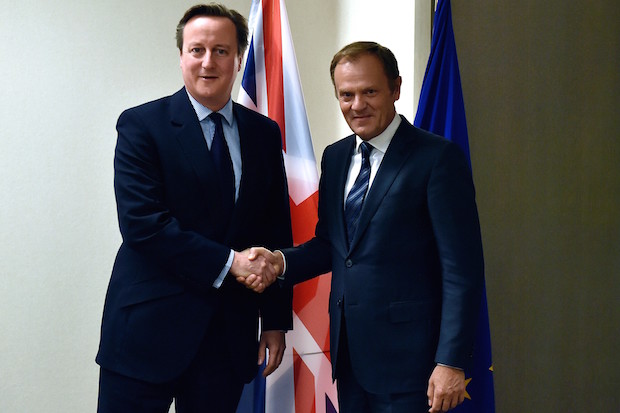Donald Tusk’s draft proposals for Britain’s EU renegotiation are out – and the focus is on whether David Cameron has got what he was after on benefits. The settlement includes the ‘emergency brake’ on in-work benefits for migrants, which would allow Cameron to ‘limit the access’ to benefits for four years. But this limit is not an outright ban: instead, it would be a gradual increase in eligibility starting with a total ban at the start of someone’s employment followed by ‘gradually increasing access to such benefits to take account of the growing connection of the worker with the labour market of the host Member State’.
The draft document spells it out as follows:
Countries would also be able to pay child benefit to workers whose children remained in their home country at the level paid in the home country, which is also not the end to the payments that the Prime Minister proposed. This means the biggest retail offer that Cameron has spent most of his time talking about is not quite as impressive as expected, and it is unlikely to get a particularly warm reception in the press tomorrow – even if a stronger ‘emergency brake’ would have made very little difference to the number of people coming to Britain to work. The Prime Minister has got the ‘red card’ system trailed in this morning’s papers, even though it is also unlikely to make much of a difference, given that it needs national parliaments making up more than 55 per cent of the votes on the European Council for a veto. If there’s a majority of countries objecting to a proposal, then they hardly need a red card to help them stop that proposal. But given the document also sets out future changes to treaties – something Cameron said needed to happen in his Bloomberg speech – the Prime Minister can argue when he makes a speech on this later that he is getting ‘fundamental change’. It’s just whether that ‘fundamental change’ will make much material difference, or indeed whether voters are sufficiently convinced by it to back staying in.‘The limitation should be graduated from an initial complete exclusion but gradually increasing access to such benefits to take account of the growing connection of the worker with the labour market of the host Member State.’







Comments